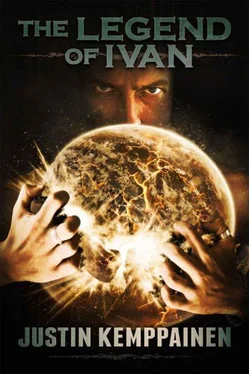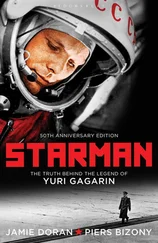There was nothing offensive in particular about it, other than a lack of unified infrastructure, net access, and research abilities as well as there being wide open tracts of uninhabited land. A dull and dreary world, it was so far removed from the workings of the greater economy that it merited only the briefest mention anywhere else.
Nothing interesting existed there: the society, the world, or its general purposes. The richest man on Belgriad could clean toilets for a Keritas middle-management fellow on Ethra. It seemed a lesser version of a multi-facet world, poor to decent by comparison in most areas but lacking anything impressive. At least poverty and crime levels were low.
Truly nothing was wrong with this world, but I didn’t like it nonetheless. Belgriad existed in an era passed by; its decades-behind progress might as well have been centuries to me.
I felt uncomfortable, out of place. In spite of suggestions of Belgriad’s general tolerance to heavy prosthesis being impressive for its distance from the galactic core, I held no strong desire to land Minerva upon its partly barren surface.
Why Traverian Grey sought his retirement in this place seemed clear and confusing at the same time. Out of the way and insignificant, it certainly provided an obscurity that all but guaranteed he’d never be bothered by his past. However, with the amount of money made in his long career, there had to exist a thousand places more luxurious.
Returning to my impressions of the planet, I realized that Grey might have been the aforementioned wealthiest individual on Belgriad, and the thought of him cleaning toilets was laughable. It made me wonder if his current role was some manner of scam.
Traverian Grey: assassin, mercenary, hunter of dinosaurs, and as near to legend as Ivan himself without a planetary destruction. This man, this hired gun, was playing deacon for an Ivan-worshiping organization.
The Penitent Children of Ivan lived in a small commune, more cult than established faith. Thankfully, they didn’t exist under one of the many absurd leaders with delusions of grandeur as well as a penchant for control of the feeble-minded. The outsider’s perspective, gathered from a few of the quaint inhabitants of a nearby city, was an impression of harmless quirk.
Even the other locals provided to me this odd sense of unnerve. Far from a few decades, I viewed some kind of bizarre amalgamation between a post-industrial and hyper-commercial society.
I’ve grown accustomed to the mining camp appearance. Dusty earth, filthy prefab barracks or bungalow housing. Half-brained workers operating equipment one hundred times more valuable than their lives. But Belgriad…
The cities and villages were so spread and varied, including dwellings from small shacks to neo-plast towers. They hardly seemed to be of the same world at all. Development moved so slowly, and in spite of an age where pre-fabricated cities could practically be dropped in from orbit, tenacious construction crawled along the surface without the greater aid of a massive budget.
Yet the people were strangely content, making me all the more uncomfortable. Net access was somewhat limited, but the citizens still had to realize that plenty of places in the galaxy could provide better technology, better quality of life, and not this limbo of being spread across eras.
Even more bizarre to my eyes, after renting a wheeled electric vehicle about four centuries old in design and traveling a few hundred miles, was the dwelling of the two hundred or so denizens of the Penitent Children of Ivan. It was a ranch.
A ranch.
They utilized cattle, beasts of burden, and traded the fresh, unaltered genetics of inferior animal specimens to attain simple supplies. None of their devices and implements required more than rudimentary electricity. Buildings were made out of stone and wood from the local, gnarled variety of trees. Passing along the outskirts, I couldn’t help but gawk as I saw laborers actually using nails to fasten pieces of their dwellings together. The entire spectacle blurred my vision and made me wonder if perhaps I had fallen into some manner of alternate existence of millennia long passed.
Clenching my elegant metallic fist, proof I was a product of and existed in a civilized, technology-driven universe, I approached the small village and prayed this experience would be brief.
“Good afternoon, friend,” an individual wearing dusty clothing and a wide-brimmed hat spoke as I pulled the quiet vehicle forward to a long fence outside of the wooden shacks. It might have been imagination or expectations, but the man’s tone seemed as an empty-headed drawl. “What brings you out this way?”
He regarded me with a sharp, wary appraisal, eyes lingering on the metal hand which gripped the steering control of the vehicle. Trying to keep the scorn out of my voice, I spoke, “I’m looking for someone.”
“That so?” The man raised an eyebrow. “Who, might I ask?”
“A man by the name of Traverian Grey. I was told he was the deacon of your church.”
He frowned. “It’s true that we have a Mr. Grey as our worship-aid, but he goes by Silas. You sure you have the right place?”
“Definitely,” I nodded, “and Silas Grey is who I need to see.”
The suspicion deepened in my new friend’s eyes. “What is it you want with Deacon Grey?”
I held up my hands, trying to appear non-threatening. “I only need to ask him a couple of questions. It won’t take long, and you can keep an eye on me if you like.” I had nothing to hide. Grey, on the other hand…
His appraisal continued for a moment. “All right. You can come in, but you have to leave the wheeler here. We prefer a simple life, and fancy technology, no offense,” he said, motioning towards my prostheses, “doesn’t fit into that.”
Nodding, I stepped out of the vehicle, glad to be away from it. Pathetic speed, bumpy suspension, and unpadded seats: it was little more than wheels, a frame, and a cheap engine. My hours-long ride was dull and uncomfortable, and I didn’t relish the thought of a return trip. On the other hand, considering my surroundings, I expected to be longing for it soon.
My new friend stuck out his hand. “Linus Newson.”
“Sid.” We shook, and I felt a blip of satisfaction at the discomfort on Newson’s face as he gripped the cold metal of my right hand.
“That short for anything?”
“Just Sid.”
We traveled through the village, dust swirling around our heels as he pointed out the function of a couple of buildings. Their construction was fine, elegant handiwork for certain, but the concept of such base manual labor without the involvement of prefab assembly seemed laughable. There was a small water pump in the middle of town, its apparatus disguised by a circular well of brick.
He motioned to a provisions building. “Most everyone gets their food and supplies from there, and most of filling it we take care of ourselves. A little gets traded with nearby towns, but they don’t think much of us.”
I understood why. Even the odd amalgamation of somewhat new and very old technology of the rest of the planet was far in advance of what they had going on in this place. I wondered if their lifestyle was a product of some backward religious ideology.
“That’s the generator.” He pointed to a larger building made of brick and stone. “Lines go underground. Some of the folks wanted to get rid of that, too, but…”
We exchanged looks, and a moment of clarity settled between us as we agreed upon certain simplicities: running water, plumbing, energy for light and heat when necessary. Still, as I glanced at the building, I couldn’t help but imagine their power being fabricated by a thousand rodents running on wheels.
Читать дальше












